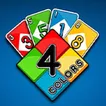




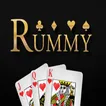

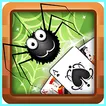
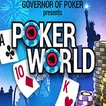













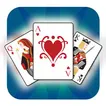
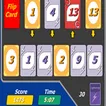




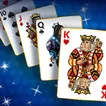





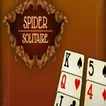










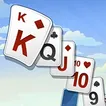
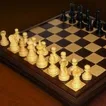





























Card Games: The Comprehensive Guide to Fun and Strategy
Card games have long been a staple of entertainment, transcending age, culture, and geography to bring people together. With a deck of cards in hand, the possibilities are as vast as the imagination of the players. This comprehensive guide delves into the multifaceted world of card games, offering insights into their rich history, the variety of games available, and the strategies that can elevate your play.
Whether you’re shuffling the deck at home with family, engaging in a friendly online match, or sitting down to a tense tournament setting, card games are a conduit for connection and mental exercise. They challenge the mind with strategic decision-making and probability assessment, while also serving as a canvas for social interaction and storytelling.
The beauty of card games lies in their simplicity and depth. A standard deck of 52 cards can unlock a universe of games, each with its own set of rules and nuances. From the fast-paced action of trick-taking games to the thoughtful planning required in collectible card games, there’s a style to suit every player’s preference.
This guide aims to equip you with the knowledge and tools to not only enjoy these games but to master them. Whether you’re a novice looking to learn the basics or a seasoned player seeking advanced strategies, you’ll find valuable resources to aid your journey. With the advent of digital platforms, card games have also found a new life online, making it easier than ever to learn, play, and connect with others around the globe.
As we explore the world of card games together, you’ll discover the joy of a well-played hand, the thrill of a close game, and the satisfaction of a strategy well executed. Welcome to the comprehensive guide to fun and strategy in the world of card games.
Mastering Card Games: Tips, Strategies, and Resources
Mastering the art of card games is a journey of continuous learning and practice. For beginners, the key is to start with the fundamentals. Learn the rules thoroughly and understand the objectives of the game you’re playing. Practice with friends or family, and don’t be afraid to make mistakes; they’re valuable lessons that will improve your play over time.
As you progress, focus on developing strategies. Pay attention to the cards played, adapt to the flow of the game, and anticipate your opponents’ moves. Remember, a good player is not just reactive, but also proactive, planning several steps ahead.
Resources are plentiful for those looking to enhance their skills. Online tutorials can provide visual and interactive guidance, while rulebooks are essential for clarifying doubts and ensuring you’re playing by the book. Community forums are treasure troves of information where you can ask questions, share experiences, and learn from fellow enthusiasts.
To sharpen your skills, consider playing a variety of card games. This will expose you to different strategies and ways of thinking. Analyze your games after you play, noting what worked well and what could be improved. This reflection is crucial for growth.
Lastly, remember that patience is a virtue in card games. Mastery does not come overnight, but with dedication and the right mindset, you can transform from a novice to a connoisseur. Embrace the challenge, enjoy the process, and the art of card gaming will reward you with both fun and mental fortitude.
Card Games Online: Connecting Players Across the Globe
The digital age has ushered in a new era for card games, seamlessly blending the traditional with the technological. Online card games have become a global phenomenon, allowing players from different corners of the world to connect and compete with just a few clicks. This virtual environment has not only made card games more accessible but has also introduced a new dimension of convenience and variety.
Playing online offers a myriad of options, catering to every level of skill and interest. Beginners can find solace in the anonymity of the internet, learning at their own pace without the pressure of a physical audience. Meanwhile, seasoned players can engage in high-stakes matches and tournaments that might not be available locally.
The online card gaming experience is enriched by sophisticated user interfaces that provide real-time statistics and insights, helping players make informed decisions. These platforms often include features like chat functions and friend lists, fostering a sense of community and camaraderie among users. Additionally, the integrity of games is maintained through the use of fair play algorithms and moderation, ensuring a level playing field for all.
One of the most significant advantages of playing card games online is the opportunity for continuous improvement. With each game recorded and analyzed, players can review their strategies and learn from past performances. Moreover, the global community offers a melting pot of styles and tactics, exposing players to diverse approaches and perspectives.
In essence, online card games represent the evolution of a centuries-old tradition, making the joy of card gaming more inclusive and expansive than ever before. As we embrace this digital extension, the essence of card gaming remains the same: a pursuit of strategy, skill, and social interaction, now available to anyone, anywhere, at any time.
The Social Power of Card Games: From Family Fun to Competitive Play
Card games are more than just a form of entertainment; they are a social catalyst that brings people together. In the cozy confines of a living room, family members of all ages can gather around a deck of cards, creating memories and strengthening bonds. These games often serve as an introduction to healthy competition and strategy for younger players, while offering a nostalgic pastime for adults.
Beyond the family setting, card games extend their reach into the realm of friendship and community building. They are a common sight in cafes and parks, where friends meet to catch up over a hand of cards. The laughter and conversation that flow from these casual games are testaments to the power of card games in fostering connections.
The social aspect of card games scales up to organized competitive play, where individuals from diverse backgrounds come together with a shared passion. Tournaments and clubs dedicated to card gaming create spaces for players to challenge each other, learn from one another, and form lasting friendships. The competitive environment also encourages respect, discipline, and sportsmanship among participants.
With the advent of social media and online forums, the card game community has expanded even further. Players can share experiences, celebrate victories, and commiserate over losses, regardless of physical distance. This virtual extension of the card gaming community allows for an exchange of strategies and personal stories, enriching the social experience of the games.
In essence, card games act as a bridge between people, transcending the mere act of playing to create a web of social interaction. Whether it’s a casual game at home, a meetup with friends, or a competitive tournament, the social power of card games is undeniable, making them a cherished activity for both fun and camaraderie.
The Enduring Popularity of Card Games: A Look at History and Future Trends
Card games have woven their way through history, emerging in various forms across different cultures and epochs. Their ancient origins are as mysterious as they are fascinating, with evidence suggesting that they were played in imperial China and among the royalty and commoners of medieval Europe. Over the centuries, these games have been more than mere pastimes; they’ve influenced art, literature, and social structures, reflecting the mores and values of their times.
The adaptability of card games has been key to their enduring popularity. They’ve evolved from simple designs to intricate illustrations, mirroring the artistic and technological advancements of societies. The rules and variations of the games themselves have been shaped by cultural exchanges, as travelers and traders introduced new ideas and styles of play.
Today, card games continue to thrive, bolstered by a blend of tradition and innovation. While classic games remain beloved, new formats and hybrid genres emerge, keeping the field dynamic and engaging. Digital platforms have given card games an unexpected edge, allowing them to stay relevant in a rapidly changing entertainment landscape. The ease of access and the ability to connect with a global player base have ensured that card games remain a fixture in the world of leisure and competition.
Looking ahead, the future of card games appears vibrant. Advances in technology promise even more immersive and interactive experiences, potentially integrating virtual and augmented reality. The essence of card gaming, with its blend of skill, chance, and social interaction, seems poised to captivate future generations just as it has in the past. As we continue to shuffle and deal, card games stand as a testament to human creativity and our love for strategic entertainment.